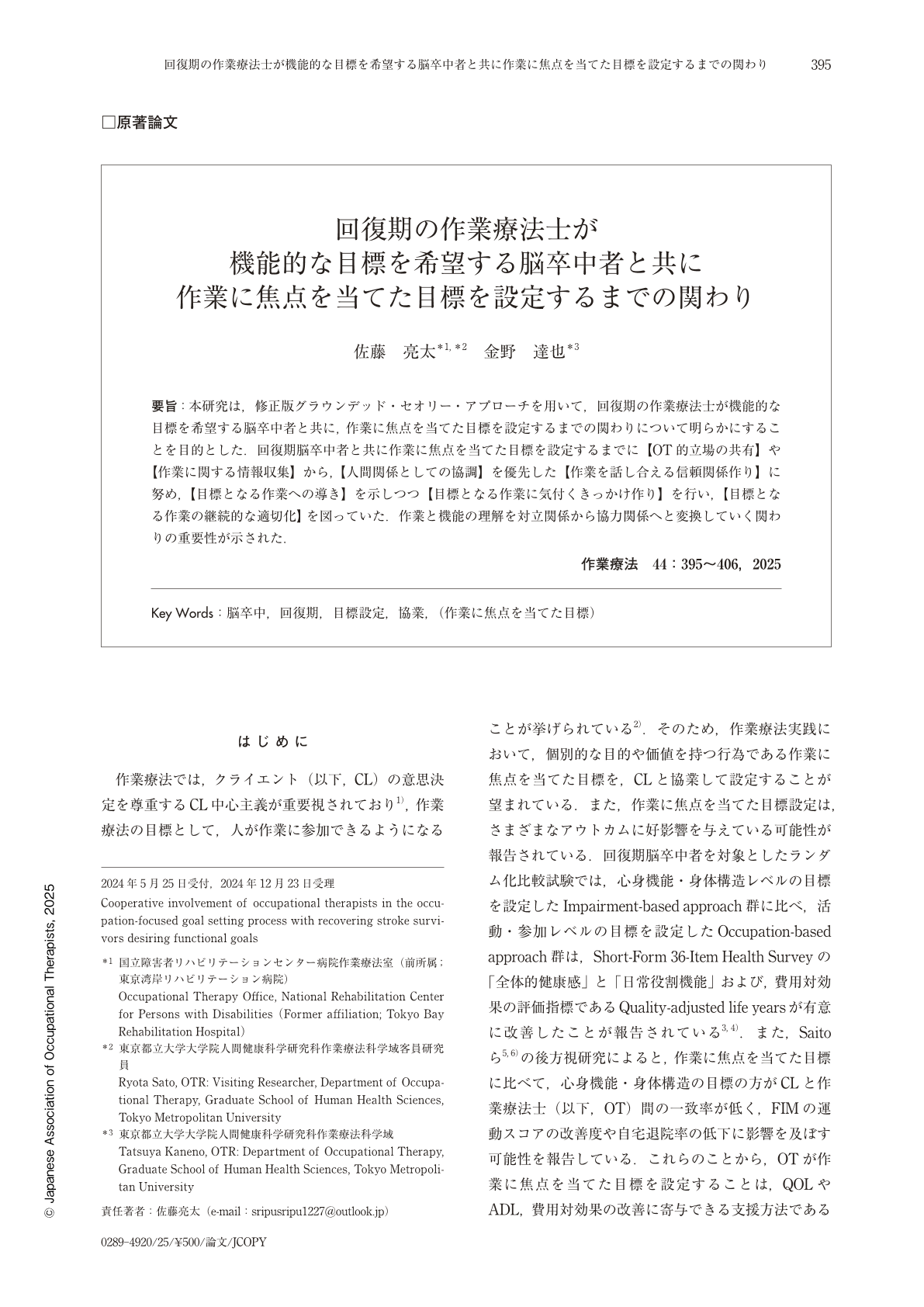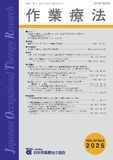Japanese
English
- 販売していません
- Abstract 文献概要
- 1ページ目 Look Inside
- 参考文献 Reference
要旨:本研究は,修正版グラウンデッド・セオリー・アプローチを用いて,回復期の作業療法士が機能的な目標を希望する脳卒中者と共に,作業に焦点を当てた目標を設定するまでの関わりについて明らかにすることを目的とした.回復期脳卒中者と共に作業に焦点を当てた目標を設定するまでに【OT的立場の共有】や【作業に関する情報収集】から,【人間関係としての協調】を優先した【作業を話し合える信頼関係作り】に努め,【目標となる作業への導き】を示しつつ【目標となる作業に気付くきっかけ作り】を行い,【目標となる作業の継続的な適切化】を図っていた.作業と機能の理解を対立関係から協力関係へと変換していく関わりの重要性が示された.
This study aimed to gain insight into the involvement of occupational therapists working in rehabilitation units with stroke survivors who desire functional goals and the process of cooperative involvement of occupational therapists in the occupation-focused goal setting. A qualitative research method was selected. Semi-structured interviews were conducted with ten occupational therapists who had experience with occupation-focused goal setting, and the data were analyzed using a modified grounded theory approach. The involvement of the occupational therapist in the process of setting occupation-focused goals with stroke survivors who desired functional goals began with the introduction of “Sharing the position as an occupational therapist” and “Gathering information on occupation,” followed by efforts to “Build a trusting relationship to discuss occupation” that prioritized “Cooperation as a human relationship” and then to “Create opportunities to become aware of target occupation” while providing “Guidance to target occupation” and “Continuous appropriateness of target occupation.” In addition, the involvement of the occupational therapist was divided into four processes: preparation for introduction, building trusting relationships, seeking opportunities, and goal adjustment. Thus, during the process of occupation-focused goal setting with stroke survivors who desired functional goals, the occupational therapist prioritized careful relationship building with the client and suggested the importance of the involvement as an occupational therapist in guiding and referring clients to occupational decisions from a professional perspective.

Copyright © 2025, Japanese Association of Occupational Therapists. All rights reserved.


